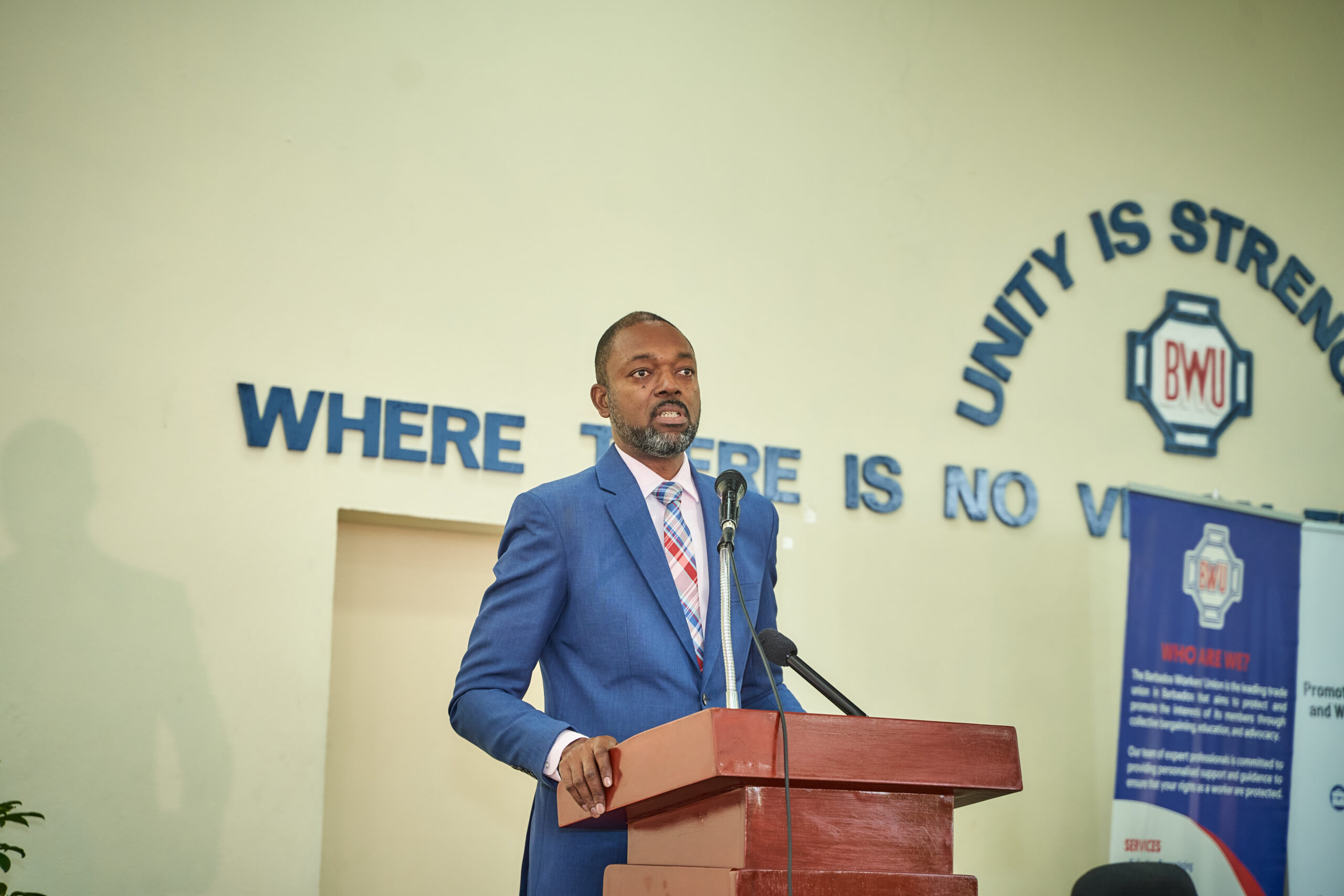New measures are set to bolster safety protocols for people working at significant heights following a series of tragic falls, including deaths, in recent years, according to Minister of Labour Colin Jordan.
During a Workplace Wellness in Action Forum at Solidarity House, the Barbados Workers’ Union headquarters, on Wednesday, Jordan said there was a pressing need for stricter regulations in response to alarming workplace accidents.
“We believe that this may be the time where we need some regulation on work at heights,” he said, suggesting that safety is prioritised alongside wellness initiatives.
He highlighted the electrocution of a 46-year-old general worker while working on the roof of a building under construction at Glacial Ice (Barbados) Ltd in Salters, St George, to underscore the gravity of workplace hazards.
“We’ve recently had some discussions in our ministry about some observations that we’ve made and some things that we have seen with respect to persons working at heights,” Jordan said.
The labour minister stressed that though there has been a heavy focus over the years on the importance of wellness, including the creation of a National Workplace Wellness Policy, safety must remain paramount for employers and employees.
“The Safety and Health at Work Act mandates the establishment of safety and health committees. I indicated earlier that we approach this matter of wellness, recognising it to be more holistic, but we also understand that we can’t take our eyes off our regular safety and health issues in workplaces.
“We don’t want safety and health committees only to be planning gym days or health checks; we still want safety and health committees to make sure there are no trip hazards, [and] no dangerous situations.”
BWU General Secretary Toni Moore stressed that wellness in the workplace needs to be seen as a high priority for employers and employees.
She said that though workers’ health should always be a vital area of focus, their wellness on the job also needs to be safeguarded.
She said: “When the Barbados Workers’ Union conceptualised the need for a wellness programme, we understood that more than health, wellness had to be prioritised. We understood that beyond the distinction between health and wellness, the implementation of wellness would require a reorientation, a culture shift, to how we interacted in the world place as employers and employees.”
Employees must also take responsibility for their own health and wellness, working alongside management to prioritise safety, she suggested.
“Don’t depend on people to do for you what you ought to be doing for yourself,” Moore said. “We have, as employees, to take responsibility for actions that will improve our own wellness. But we recognise in the work environment – which is where the national wellness programme focuses a lot of its work – unless it is supported by leadership in those organisations then we don’t [succeed]. Organisations have the responsibility to support good wellness practices along all nine dimensions.” (SB)




